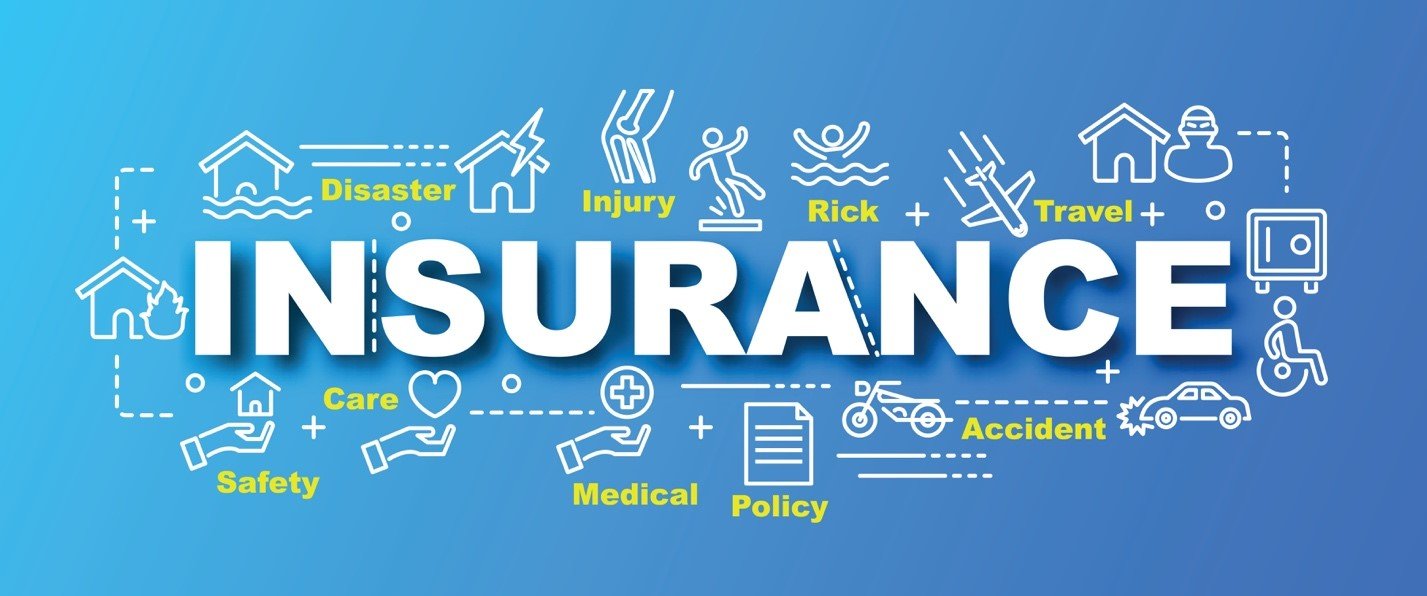Insurance is a critical aspect of financial planning and risk management. It provides a safety net against unforeseen circumstances, ensuring that individuals and businesses can recover from losses with minimal financial disruption. This comprehensive guide delves into the various types of insurance, their benefits, and how to choose the right policy to meet your needs.
What is Insurance?
Insurance is a contract represented by a policy in which an individual or entity receives financial protection or reimbursement against losses from an insurance company. The company pools clients’ risks to make payments more affordable for the insured.
How Insurance Works
Insurance involves the policyholder paying a premium in exchange for coverage against specific risks. In the event of a covered loss, the insurance company will compensate the policyholder according to the terms of the policy. This system helps spread risk and reduce the financial burden on individuals and businesses in the face of unexpected events.
Types of Insurance
Life Insurance
Life insurance is designed to provide financial security to beneficiaries in the event of the policyholder’s death. There are several types of life insurance policies:
- Term Life Insurance: Offers coverage for a specific period, typically 10, 20, or 30 years. It provides a death benefit if the insured dies within the term.
- Whole Life Insurance: Provides lifetime coverage with a savings component, allowing the policy to build cash value over time.
- Universal Life Insurance: Offers flexibility in premium payments and death benefits, combining term and investment features.
Health Insurance
Health insurance covers medical expenses, including doctor visits, hospital stays, and prescription drugs. It can be obtained through employers, government programs, or private insurers. Key types include:
- Individual Health Insurance: Purchased by individuals to cover themselves and their families.
- Group Health Insurance: Provided by employers to their employees as part of a benefits package.
- Medicare and Medicaid: Government programs that provide coverage for eligible seniors and low-income individuals, respectively.

Auto Insurance
Auto insurance protects against financial loss in the event of an accident or theft involving a vehicle. It typically includes several types of coverage:
- Liability Coverage: Pays for damages and injuries you cause to others in an accident.
- Collision Coverage: Covers damage to your vehicle from a collision.
- Comprehensive Coverage: Protects against non-collision-related damage, such as theft, fire, or natural disasters.
- Uninsured/Underinsured Motorist Coverage: Provides protection if you’re involved in an accident with a driver who lacks sufficient insurance.
Homeowners Insurance
Homeowners insurance provides coverage for your home and personal property against damage or loss. It typically includes:
- Dwelling Coverage: Protects the structure of your home.
- Personal Property Coverage: Covers personal belongings inside the home.
- Liability Coverage: Protects against legal claims if someone is injured on your property.
- Additional Living Expenses: Pays for temporary housing if your home becomes uninhabitable due to a covered event.
Renters Insurance
Renters insurance is similar to homeowners insurance but tailored for tenants. It covers personal property, liability, and additional living expenses.
Disability Insurance
Disability insurance provides income replacement if you’re unable to work due to illness or injury. It comes in two main types:
- Short-Term Disability Insurance: Covers a portion of your income for a short period, typically up to six months.
- Long-Term Disability Insurance: Provides income replacement for longer periods, potentially until retirement.
Travel Insurance
Travel insurance offers protection against travel-related risks, such as trip cancellations, medical emergencies, and lost luggage. It is particularly useful for international travel.
Choosing the Right Insurance Policy
Assess Your Needs
Determine what risks you need coverage for. Consider factors such as your health, age, financial situation, and assets.
Compare Policies
Research and compare policies from different insurers. Look at coverage options, premiums, deductibles, and exclusions.
Read the Fine Print
Understand the terms and conditions of the policy. Pay attention to coverage limits, exclusions, and the claims process.
Seek Professional Advice
Consult with an insurance broker or financial advisor to get expert advice tailored to your situation.
Benefits of Having Insurance
Financial Protection
Insurance provides a financial safety net, helping you recover from unexpected events without significant financial strain.
Peace of Mind
Knowing you’re covered in the event of a disaster or emergency provides peace of mind and reduces stress.
Risk Management
Insurance helps manage and mitigate risks, allowing you to focus on other aspects of your life or business.
Legal Requirements
Certain types of insurance, such as auto and workers’ compensation, are legally required, ensuring compliance with laws and regulations.
The Future of Insurance
The insurance industry is evolving with technological advancements and changing consumer needs. Key trends include:
Digital Transformation
Insurers are leveraging technology to streamline operations, improve customer experience, and offer innovative products. This includes the use of artificial intelligence, big data, and blockchain.
Customization
There is a growing demand for personalized insurance products that cater to individual needs and preferences.
Sustainability
Insurers are increasingly focusing on sustainability, offering products that address environmental risks and promote green practices.
Cyber Insurance
As cyber threats increase, so does the need for cyber insurance to protect against data breaches and cyber-attacks.
Conclusion
Insurance is an essential component of financial planning and risk management. By understanding the different types of insurance and how to choose the right policy, you can protect yourself, your loved ones, and your assets from unforeseen events. As the industry continues to evolve, staying informed about new trends and products will ensure you have the best coverage to meet your needs.
